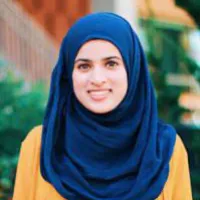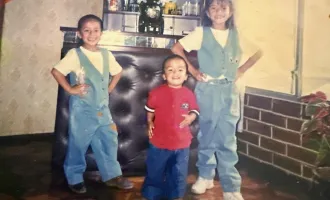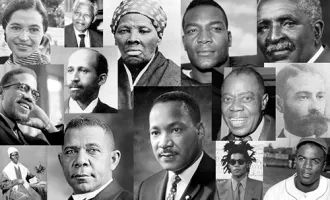
Meet the Co-Presidents of Med Students for Choice
In our latest podcast episode, pre-med student and Synapse contributor Sarah Siddiqui talks to the co-presidents of the UCSF chapter of Med Students For Choice, second year UCSF medical student Neha Pondicherry and second year UC Berkeley-UCSF Joint Medical Program student Meredith Klashman, about the fight for reproductive justice at a time when a woman’s right to bodily autonomy, which was constitutionally protected 50 years ago under Roe v. Wade, is poised to be rescinded.
Sarah Siddiqui: What is the mission of Med Students for Choice?
Meredith Klashman: A lot of people really only end up learning about how abortion works and what it looks like and how family planning works and contraceptive works in a clinical space if they are going into specializing in that. But the way we feel about it is that no matter what, it’s going to be something that shows up in your patient history. It’s going to be something that comes up in every sort of profession within the medical field. So, we really want our classmates to know be educated about that. A lot of the work that we do is the recognition that the reproductive justice movement has been one that — especially in terms of family planning and contraceptives — that has been really inequitable. It’s one that is also rooted in eugenics, especially in the state of California. So, you want to be really mindful of that as we move forward. And just make sure we’re also educating ourselves and our classmates about some of the really, really harmful history of this field and how we can do better as we are looking to forge the future in terms of advocating for access.
Neha Pondicherry: My goals with this organization, were mostly to bring awareness. I think there’s this inherent taboo of talking about reproductive rights and abortion. And I think the more we talked about it, and really foster the conversations and bring awareness to the issue, the more people are willing to talk about it and willing to give basic access to rights that all women, and not only women, but all people who are capable of being pregnant deserve. And so I think for me, opening those conversations, fostering those conversations, having the elective having the panel, having places where people can really talk about those experiences, and open them up is the reason that I really wanted to do this work.
SS: Can you explain how you became interested in Med Students for Choice?
NP: The reason that I was very interested in this is because I think inherently, we have the right to our own body, and that entails the right to any medical decisions that we need to make for our own bodies. And I don’t think that anyone else has the right to really dictate where we stand on that. And so that’s something that I’ve been very firm about my body, my choice. And that’s why I was very passionate about this.
MK: I came into this space with a lot of experience with reproductive and gynecologic illness. And so, from having that experience, I think I learned how important a part of the conversation abortion is even in situations of IVF. The right to one really equates to the right to the other. So, and I think that that plays out in many different ways in healthcare. The right to choose is something that permeates a lot of autonomy in the medical space. So, I really wanted to be a part of Med Students for Choice to really contribute towards that conversation and movement in our in our healthcare system.
SS: What is one thing you learned after being involved with this organization?
MK: One thing that we engage with a lot — and that has really been driven home by a few of the speakers — is just how important California physicians are in the fight for national access to abortion. It’s something that COVID really interferes with, because especially at the beginning of the pandemic, when we saw a lot of issues with travel restrictions, we really saw a decrease in abortion access in a lot of different states because physicians from the state of California could not go to, you know like, Texas for a week and provide abortion. That’s something that has really shifted my perspective in terms of what we should be fighting for. Because as physician trainees in the state of California, I think we have a lot of privilege and a lot of access to information. So, I think because of that, we have a lot of responsibility to the people who are not able to access that information or access those services.
NP: I think the most important thing that I took away from this was Meredith and I tried to advocate for increased abortion access in our curriculum. And it was a really fascinating process to learn more about the history and learn about the legal aspects of abortion curriculum. UCSF is doing a great job, but even in such a progressive institution like UCSF, there is always room for improvement. And it’s hard to gain the momentum, that real push to change. And I think unless Meredith and I are like standing there, begging the deans to add abortion and access more into the curriculum, things won’t happen. Basically, we learned that in order to make any change, it really starts from a few dedicated passionate individuals who are willing to put in the time and the energy and really bring issues to the forefront. Because there are so many issues that are important, and everyone is passionate fighting about different things. And sometimes what happens is issues that some people may say aren’t as important get kind of pushed aside. But it’s our responsibility if we’re passionate about it to really bring it to the forefront of the conversation.
SS: What’s been the student response?
MK: Since the legislation that Texas recently put into place [banning abortions after six weeks of pregnancy and empowering private citizens to sue anyone viewed as helping a woman get a forbidden abortion] we’ve received a lot of interest. That really does speak to the power of conversation and destigmatizing. That was really a turning point, I noticed, in terms of our attendance, in terms of our communications with people across all the different schools. We saw so much energy right after that had happened.
NP: I absolutely agree. And honestly, it was really inspiring to see how many people were passionate about it. There are so many issues that people are passionate about and, yes, it’s important that we have Roe v. Wade, and we thought nothing would happen. And until the Texas legislation was passed, I think people didn’t really realize how precarious the reproductive health situation in America was. I think that was the spark that really lit a lot of people’s attentions. And they’re like, ‘Oh, wow, we really have a problem. We need to do something now.’ I think that galvanized a lot of students at UCSF, and I hope with more access, and more reproductive health electives, and more panels, more and more students start to realize it’s an important issue. We’re really capitalizing on this momentum right now. And I think it’s only going to grow from here in terms of student engagement and participation in turnout and interest.
SS: How has COVID-19 impacted your organization?
MK: Some things have actually been made easier. There is so much presence in a virtual space that we can actually convene more people than maybe we would otherwise be able to. In the spring of last year, we were able to present a doula midwifery training video. We also had Carol Jaffe, who is a sociologist who studies abortion practitioners. She talked about the struggles a lot of practitioners have been facing during COVID and providing the care that they want to provide. And then this semester, we’ve also been putting on virtual panels, virtual elective courses. There are some parts, especially about learning some strategies like how to insert an IUD, that’s something that really does need to be hands on. And so that’s definitely something that I hope can make a return in the coming months.
NP: The virtual platform has allowed people from all over to come and present on topics that we probably wouldn’t have heard other people speak. For example, we had an abortion panel on what the perspective is of providers giving abortions, we had providers from all over — one from Tufts University, one from USC, and then a few from UCLA. And so the virtual platform has allowed not only our audience to grow, because students from all those three schools were able to come, but also exposure to providers from different areas of the country, which is important, because obviously, as you know, abortion access differs greatly depending on where you live.
SS: When does your organization typically meet?
MK: We can’t meet in person. So, for now, the family planning and reproductive choices elective is occurring every Wednesday at noon across the different schools at UCSF, the School of Medicine, the School of Pharmacy, the School of Nursing. We’re catering the classes and the speakers to have something for everyone in the different schools and what they need to know regarding different topics. We also have events that either are going to occur at night or have occurred in the evening time that people can come — especially to our really popular talks like the abortion provider panel.
SS: Thank you guys for taking time out of your busy schedules. I’m really glad to be able to feature you, both on the podcast and the article.
NP: Really, really thank you, Sarah for giving us this opportunity. And I really hope that we get to talk to you more soon.
MK: Oh, yeah, just completely echo what Neha said. This is really exciting for us to get to have a platform like this, so we really appreciate it.



